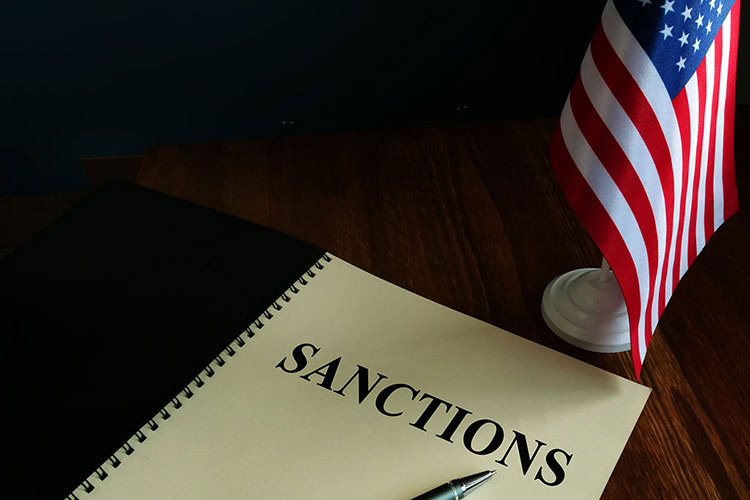Understanding (Russian) Sanctions in Jewelry

This advisory from the Jewelers Vigilance Committee was published on March 1, 2022. It is provided here as a service to the industry. For up-to-date guidance, visit jvclegal.com as information and sanctions may change swiftly and significantly. Before making business decisions, research the most recent guidance and consult legal counsel.
JVC offers up-to-date information on sanctions in jewelry and broader used materials to help guide companies through current events. Doing business in the United States in the jewelry industry, which consistently sources raw materials and products from abroad, requires keeping aware of certain restrictions that the U.S. maintains against foreign countries, entities, and persons pursuant to several sanction programs. These sanctions, which can be general prohibitions on business or specific prohibitions on types of financing, trade, or products, are important to understand and follow; businesses should ensure that they are not inadvertently or intentionally doing business with blocked entities or in a prohibited manner. The Office of Financial Assets Control (OFAC), part of the U.S. Treasury Department, maintains lists of countries and entities that are subject to these sanctions.
On February 24, 2022, the Biden-Harris administration issued sanctions prohibiting certain types of trade with Russian state-owned agencies and added certain persons to the Office of Foreign Assets Control’s Specially-Designated Nationals list. The information is available here. These sanctions were issued in response to Russia’s invasion of Ukraine.
Alrosa was added to a list of menu-based sanctions but not added to the Specially Designated Nationals List. Effectively, this action bans U.S. businesses and persons from entering into debt transactions longer than 14 days with Alrosa but does not impose the harsher sanctions of an asset freeze and outright prohibition of all business. For the jewelry industry, any open memo agreements previously entered into with terms longer than 14 days should immediately be amended to shorten the terms, and/or closed. Any U.S. business that is currently transacting with Alrosa or Alrosa USA should evaluate the status of any transactions and work to ensure that their transactions do not violate the sanctions. Additionally, a number of Russian banks were sanctioned; businesses should be careful to check the list before proceeding with any transaction.
In addition, Sergei S. Ivanov, the CEO of Alrosa, has been added to the OFAC Specially-Designated Nationals list as an individual. Generally, when a business is not on the OFAC list itself but is controlled by a blocked person, OFAC urges caution when considering a transaction with that entity. Such non-blocked entities may become the subject of future designations or enforcement actions by OFAC. In addition, OFAC recommends that persons should be cautious in dealing with such a non-blocked entity to ensure that they are not dealing with a blocked person representing the non-blocked entity, such as entering into a contract that is signed by that blocked person. If this is the situation for your company, you should seek legal guidance from outside counsel before taking any further steps.
Businesses should evaluate whether any of their suppliers or customers are transacting with Alrosa, Ivanov, or any of the banks or other entities named in the sanctions. Those with questions or a need to obtain authorization to wind down transactions under a general license should contact the OFAC hotline at 1-800-540-6322.
This Executive Order does not apply to any goods acquired from Alrosa or Alrosa USA before February 24, 2022. Any goods acquired and paid for before that date may be purchased and sold in the U.S. without any need to obtain a license from Treasury. As a best practice, businesses should keep records and invoices showing the date any Russian-origin goods were acquired and pass along this information to their customers when requested.
Source: Jewelers Vigilance Committee, www.jvclegal.com